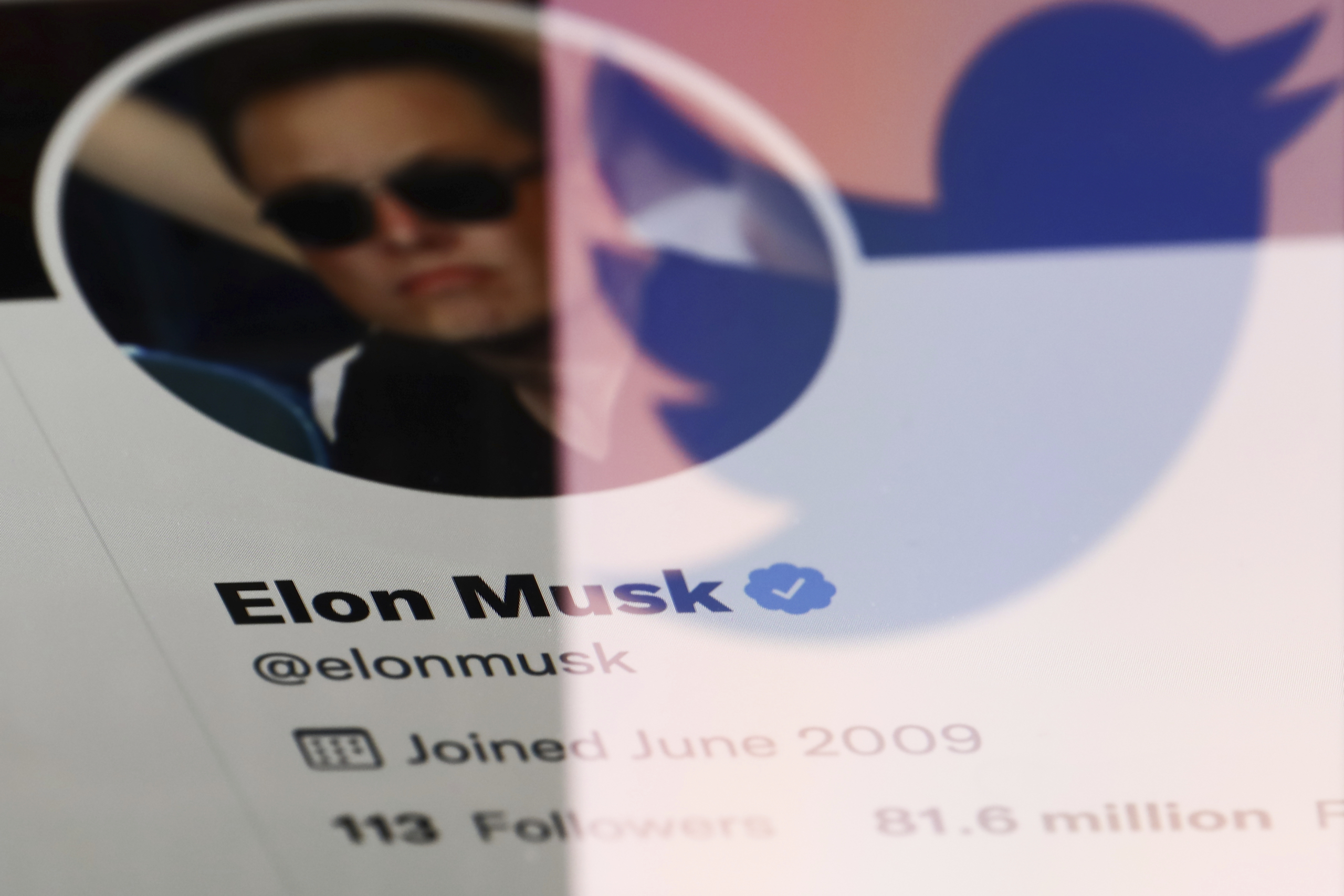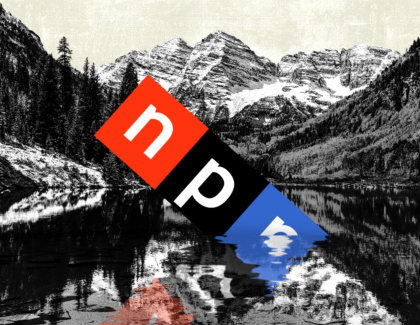Sign up for the daily CJR newsletter.
On April 13, Elon Musk formally filed a bid with the Securities and Exchange Commission to acquire Twitter for $43 billion. Since then, Twitter users and media analysts alike have speculated about his motivation for the acquisition and his plans for the company. For the most part, Musk has spoken in general terms about his desire to own Twitter, which he has likened to a town square, and expressed concern about how it handles free speech. He has also said that he will be happy if both the far right and the far left are equally upset by the way he runs the company—though he recently commented to Mike Cernovich, who helped promote the Pizzagate conspiracy, that Twitter “has a strong left-wing bias,” a popular right-wing claim that social media researchers say is not accurate.
At a Financial Times conference on Tuesday, Musk provided one of the first concrete examples of his plans for Twitter should he acquire it: reinstating the account of former president Donald Trump, who was permanently banned from the platform following the January 6 attack on the Capitol for promoting violence. Musk called the ban “a mistake because it alienated a large part of the country and did not ultimately result in Donald Trump not having a voice,” the New York Times reported. Musk added that the ban was “morally wrong and flat-out stupid,” and that “permanent bans just fundamentally undermine trust in Twitter.” (Trump, for his part, has said that he won’t rejoin Twitter even if his account is reinstated.)
Jack Dorsey, a cofounder and former CEO of Twitter, quickly agreed with Musk, posting on Tuesday that permanent suspensions of individual users “are a failure” of the company and “don’t work.” Dorsey, who was running the company when Trump was banned, had previously said that the decision, while difficult, was ultimately the right one; on Tuesday, he appeared to change course, saying that the Trump ban “was a business decision [and] I still believe that permanent bans of individuals are directionally wrong.” Musk and Dorsey aren’t the only ones who feel this way; Gilad Edelman, writing in Wired, argued that both have a point. “It’s probably not a good idea for important platforms to be in the business of frequently banning users for life,” he said, adding that may apply especially for Twitter, which “occupies a unique place in American political life, which is precisely why Trump and other political figures are so obsessed with it. It’s where the hyper-educated ‘elite’ who disproportionately make up the political class, especially the media, spend way too much of their time and attention.”
ICYMI: TikTok and the son of Ferdinand Marcos take the Philippines back to the future
Since making his acquisition offer, Musk, who has presented himself as a free-speech absolutist, has offered few specifics on what speech on the platform might look like should he acquire it. His other comments at the FT conference gave little insight. When pressed for his thoughts on how Twitter should handle other forms of objectionable content, Musk said blocking tweets or even suspending accounts might still be required if a given user says “something that is illegal or otherwise just, you know, destructive to the world”—an apparent change from earlier comments, when Musk said that the service would allow any content that didn’t break the law. Musk went on to say, “If there are tweets that are wrong and bad, those should be either deleted or made invisible, and a suspension—a temporary suspension—is appropriate, but not a permanent ban.” He didn’t say how the company would define the terms “wrong” or “bad”—or, for that matter, “destructive.” Alex Stamos, the former head of digital security at Facebook, said watching Musk try to “re-create several decades of trust and safety work by tens of thousands of people [is] likely to give me a stroke.”
Edelman, in Wired, wrote that “the most likely explanation for Musk’s conflicting statements is that he’s simply making this up as he goes and has not given any serious thought to how content rules should work on the social platform that he’s trying to spend $44 billion to buy.” As odd as that might sound, there is some evidence that Musk may not have thought through every aspect of his purchase. For example, he has said that he “doesn’t care about the economics” of the deal, and admitted to a friend he “had no plan for how to finance or manage Twitter,” the Times reported.
One of the billionaires Musk reached out to in order to help finance the acquisition also suggested the deal lacks some of the elements common in $40 billion acquisitions—including a business plan. Changpeng Zhao, the founder of cryptocurrency exchange Binance, told the Financial Times he agreed to hand over $1 billion to help finance the deal without seeing any kind of proposal for what Musk wants to do with the company. “There isn’t, like, a business plan. So it wasn’t that type of discussion,” Zhao said. “It was more of a blank check.” That said, Musk did assure some of the bankers he spoke to that he would be paying attention to Twitter’s profitability, and that he might cut costs in order to save money, according to Bloomberg.
Musk also told investors he plans to take Twitter public again with an IPO in as little as three years, according to the Wall Street Journal. But before he does so, he will have to wrestle with the myriad problematic aspects of a company that Kyle Chayka described in The New Yorker as “the hot potato of the Internet, or perhaps more like a zone of nuclear radiation.” How Musk plans to do that remains to be seen. As Derek Thompson wrote in The Atlantic about the future of Twitter, “Anybody who is extremely confident about how this is going to work out doesn’t know what they’re talking about.”
Here’s more on Twitter:
- Surprise: Evelyn Douek, a doctoral student at Harvard Law School and research fellow at the Knight First Amendment Institute at Columbia University, wrote in The Atlantic that Musk “is in for a surprise” if he successfully acquires the company. “A fun thing about content moderation [is that] almost everyone thinks that it’s broken, albeit in different ways,” Douek wrote. “Many on the left celebrated platforms’ ability to banish Trump with a few clicks. Many on the right believe they are unfairly targeted by left-leaning Silicon Valley executives and may celebrate a more freewheeling Twitter if Musk gets rid of many of its content-moderation rules. But that’s shortsighted. Ultimately, private power will always protect private power and not public interests.”
- Rules: The Times said Musk’s offer for Twitter breaks almost all the rules of most leveraged buyouts. “Twitter’s earnings before interest, taxes, depreciation and amortization, or EBITDA—a key measure of its capacity to service its debt—is roughly $1 billion a year,” the Times explained. “The typical leveraged buyout puts debt worth six times a company’s EBITDA on its balance sheet, according to LCD, a data service. The debt in Mr. Musk’s proposal is twice as high.” Traditional private equity buyers use very little of their own cash, the Times said, but Musk has committed to pay $12.5 billion of the total himself.
- Pressure: Some China experts believe that if Musk is successful in acquiring Twitter, the Chinese government could put pressure on him to ban certain accounts or promote misinformation, because Tesla, Musk’s electric-car manufacturing company, relies on its friendly relationship with Chinese authorities. Twitter under Musk “will need to confront China’s leverage,” the Wall Street Journal wrote. Fergus Ryan, an analyst at the Australian Strategic Policy Institute, explained in the Journal that China has a track record of pressuring businesses in order to extract political concessions. “There will be lots of opportunities for Beijing to put the squeeze on Musk,” Ryan said.
- Bans: Craig Brittain, a Republican running for a Senate seat in Arizona, said in a Facebook post that “all permanent Twitter bans will be overturned by Elon Musk, including my 5+ year ban,” although he provided no evidence for what he called “this absolutely amazing news.” Brittain used to run a website called Is Anybody Down? that allegedly posted nude photos of women and charged money to have them removed. His account was suspended by Twitter after he posted comments implying that the victims of the Parkland school shooting were crisis actors. At the time, he said that the suspension was proof that Twitter “is in the business of trying to rig elections for the left.”
Other notable stories:
- Following a ruling from a federal appeals court, a Texas law that could prevent social media platforms from banning users or removing misinformation will soon take effect, according to The Verge. “Tech industry trade groups NetChoice and the Computer and Communications Industry Association (CCIA) managed to block HB 20 in court last year, but that victory has been undone by the Fifth Circuit Court of Appeals,” The Verge reported. The law allows the governor’s office or any Texas resident to sue any social network that moderates content based on “the viewpoint of the user or another person,” among other offenses. A similar law in Florida was blocked last year.
- Bloomberg is expanding in the UK, the New York Times reports. “On Wednesday night, executives introduced a venture that they hope could generate $100 million in annual revenue: Bloomberg UK, a brand meant to compete directly with The Financial Times and The Sunday Times,” the paper said. The new site will include a website, a weekly video series profiling British newsmakers, a podcast about the City of London, and a business summit. Bloomberg has been in the British market for three decades, the Times reports, but the new unit marks a major expansion of its efforts in the country.
- Former Fox News anchor Ed Henry, who was fired by the network in 2020 after sexual misconduct allegations were made against him, has dropped his defamation lawsuit against NPR and CNN, the Daily Beast reports. Henry initially alleged last year that journalists at the two outlets—including NPR media reporter David Folkenflik, CNN chief media correspondent Brian Stelter, and anchor Alisyn Camerota—had “longstanding grudges against Fox News and/or individuals associated with the company” that guided their reporting on his firing, according to the Beast. Folkenflik said the case was dismissed “with prejudice,” which means it can’t be refiled on the same or related grounds.
- Google has signed deals to pay more than 300 publishers in six European countries for their news content, and will also offer a tool to make it easier for others to sign up to receive compensation for the platform’s use of their work, the company told Reuters. “So far, we have agreements which cover more than 300 national, local and specialist news publications in Germany, Hungary, France, Austria, the Netherlands and Ireland, with many more discussions ongoing,” Sulina Connal, director for news and publishing partnerships at Google, wrote in a statement seen by Reuters. Two thirds of the publishers that are receiving payments are German outlets, including Der Spiegel, Die Zeit, and the Frankfurter Allgemeine Zeitung.
- Meta, the parent company of Facebook, said on Wednesday that it has withdrawn a request to have its Oversight Board provide an opinion on how it handles content related to the Russian invasion of Ukraine. The company said the decision to withdraw the request “was not made lightly,” and that it did so due to “ongoing safety and security concerns,” but did not provide any details about what those concerns were. It is the first time Meta has withdrawn such a request. Casey Newton, who writes a technology newsletter called Platformer, said on Twitter that “the big criticism of the Oversight Board from the start was that it was toothless. This will lend credence to those fears.”
- The Dispatch, a conservative news and commentary newsletter, is leaving Substack, the newsletter-hosting platform, according to Steve Hayes, one of the newsletter’s founders. Hayes told The Rebooting—a podcast from Brian Morrissey, the former editor of Digiday—that his newsletter outgrew the kinds of tools Substack provides. “There was a certain point when they were seeing the success that they were having by focusing on individual content creators, and said, we need to do more of this,” Hayes said. “And there came a point, when their growth, which was just monumental and what they were doing to get that growth, didn’t work for us as much as it had in the past.”
- Slate has named Hillary Frey, a former editor at HuffPost, as its new editor in chief. In a memo to staff on Wednesday, Dan Check, Slate’s chief executive, said Frey was “the exact right person to lead Slate’s newsroom in this new phase of growth,” the Times reported. The paper added that Slate is “one of few surviving original digital media outlets,” and has “struggled in recent years to find its way in the new media landscape and figure out a sustainable business model.” Slate has not had an editor in chief since January, when Jared Hohlt left.
- And Twitter said Wednesday that it is rolling out a new “Copypasta and Duplicate Content” policy to clarify how the platform works to combat spam and duplicative content, TechCrunch reported. The term “copypasta” is internet slang for posts that duplicate content from a particular source. “An example of a violation is identical or near-identical content tweeted by an individual account or several accounts,” Twitter said. The company added that tweets wouldn’t have their visibility limited if they included “unique content or commentary” in addition to content copied from somewhere else.
New from CJR: Challenging secrecy in the Justice Department’s Office of Legal Counsel
Has America ever needed a media defender more than now? Help us by joining CJR today.







